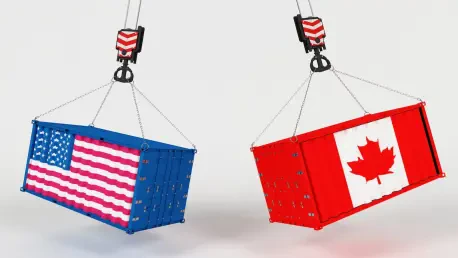The U.S.-Canada relationship is often seen as a model of international cooperation and diplomatic partnership. However, recent years have brought both collaborations and tensions to light, especially in areas of military alliance and economic strategies. With the evolving geopolitical landscape, key discussions have emerged regarding the fairness of military expenditures, economic alignments, and proposals on national integration. This roundup article gathers insights from various perspectives on these topics, providing a comprehensive understanding of the complexity behind the partnership.
Security Alliances: A Pillar of Strength and Division
Several experts agree that security alliances like NATO and the North American Aerospace Defense Command (NORAD) form the backbone of U.S.-Canada military cooperation. These alliances are praised for joint operations and mutual defense. Data from these organizations reveal significant joint security efforts, showcasing collaboration in response to global threats. However, some suggest that the decision-making power in these alliances may not always reflect an equitable distribution, with concerns about the fairness of financial contributions surfacing in discussions.
Economic leaders and analysts debate the fairness of military expenditures. Supporters emphasize the need for shared fiscal responsibility, while critics point out that the burden often falls disproportionately on certain members, potentially fostering division rather than unity. This debate continues to shape the discourse on the future of security alliances and their impact on bilateral relations.
Polarizing Tariffs: Economic Weapon or Bargaining Chip?
Economic policies between the United States and Canada have undergone significant scrutiny, particularly due to tariff implementations. Tariffs from the U.S. have notably impacted Canadian industries, including critical sectors like steel and agriculture, instigating a shift in trade relations. Economic experts point to these tariffs as a strategic bargaining tool in negotiations, while others argue they constitute a disruptive economic weapon that strains the partnership.
Canadian economic strategies, as opposed to their U.S. counterparts, emphasize diversification and resilience. Analysts debate the effectiveness of these approaches, with some suggesting that diverging economic tactics might create short-term challenges yet foster long-term synergies through innovation and access to new markets.
Trump’s 51st State Proposition: Wishful Strategy or Diplomatic Faux Pas?
Trump’s suggestion of integrating Canada as the 51st state has elicited a wide array of reactions. Canadian and American officials, as well as the general public, largely view the proposition as diplomatically insensitive. Experts argue it undermines the established respect for national sovereignty and unique cultural identity that defines the Canadian nation.
Moreover, such proposals stir critical dialogue on the implications for Canadian sovereignty. Specialists note that while Trump’s proposition may have been intended to underline benefits like reduced taxation and enhanced military protection, it has inadvertently intensified discussions on national identity and the intrinsic value of independence.
Balancing Act: Canada’s Role in an Evolving Military Landscape
Canada’s strategic position within the global military framework remains a focal point of consideration. Canada’s investments in defense, along with shifts in policy, demonstrate a commitment to maintaining a relevant role in North American security narratives. These decisions reflect both immediate needs and long-term benefits as Canada adapts to changing global threats.
Some strategists highlight Canada’s approach as pragmatic, focusing on enhanced capabilities and strategic alliances to safeguard national and regional interests. This balance between current demands and future security objectives shapes Canada’s role not only within North America but also on a global stage.
Key Messages and Strategic Insights
The overarching theme of U.S.-Canada relations encompasses military and economic alliances that require continuous evaluation and adaptation. Experts emphasize the importance of fostering stronger ties through balanced military and economic contributions. While challenges persist, strategic insights suggest a path toward resolving key issues diplomatically and reinforcing mutual benefits.
Approaches to strengthening these relations include revisiting economic policies, ensuring fair allocation of defense resources, and fostering bilateral dialogue. Such measures are anticipated to contribute positively to the health of a historically significant diplomatic partnership.
Solidified Relations Amid Global Uncertainties
The enduring significance of U.S.-Canada relations cannot be overstated, especially in the context of global uncertainties. Reflecting on recent challenges and collaborations underscores the necessity of maintaining a strong alliance. The future dynamics of cross-border relations depend on the ability to navigate economic and military tensions thoughtfully.
As the landscape of international diplomacy evolves, both countries remain dedicated to reinforcing their partnership. The insights gathered here offer practical considerations for policymakers, contributing to a nuanced understanding of the importance of sustainable, cooperative strategies within international relations.









